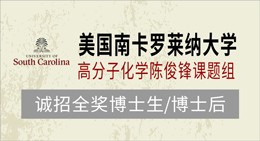-
“Always-Already-Created”: Theology of Creation in the Context of Artificial Intelligence Theology and Science (IF 0.6) Pub Date : 2024-07-18 Chammah J. Kaunda
This article suggests the idea of everything is “always-already-created” as a metaphysical framework for making sense of and constructing an African Pentecostal theology of creation in the context ...
-
Tales of twin cities: what are climate analogues good for? European Journal for Philosophy of Science (IF 1.5) Pub Date : 2024-07-22 Giovanni Valente, Hernán Bobadilla, Rawad El Skaf, Francesco Nappo
This article provides an epistemological assessment of climate analogue methods, with specific reference to the use of spatial analogues in the study of the future climate of target locations. Our contention is that, due to formal and conceptual inadequacies of geometrical dissimilarity metrics and the loss of relevant information, especially when reasoning from the physical to the socio-economical
-
Scientific experimental articles are modernist stories European Journal for Philosophy of Science (IF 1.5) Pub Date : 2024-07-17 Anatolii Kozlov, Michael T. Stuart
This paper attempts to revive the epistemological discussion of scientific articles. What are their epistemic aims, and how are they achieved? We argue that scientific experimental articles are best understood as a particular kind of narrative: i.e., modernist narratives (think: Woolf, Joyce), at least in the sense that they employ many of the same techniques, including colligation and the juxtaposition
-
An Ecotheology for the Dawn of Interstellar Exploration and Expansion Theology and Science (IF 0.6) Pub Date : 2024-07-09 Margaret Boone Rappaport, Christopher J. Corbally, Riccardo Campa
Environmental protection principles finding their way into theology do not stop at the edge of our Solar System. Exoplanets orbiting other stars will be visited in the future and will require envir...
-
Robots in Religious Practices: A Review Theology and Science (IF 0.6) Pub Date : 2024-07-08 Jonas Simmerlein, Max Tretter
A growing number of robots perform religious practices. Consequently, a lot of research is already done on robots and religion. What has been missing from the current research landscape is a comple...
-
Optimized Skin Lesion Segmentation: Analysing DeepLabV3+ and ASSP Against Generative AI-Based Deep Learning Approach Foundations of Science (IF 0.9) Pub Date : 2024-07-09 Hassan Masood, Asma Naseer, Mudassir Saeed
-
Quantum ontology and intuitions European Journal for Philosophy of Science (IF 1.5) Pub Date : 2024-07-10 Valia Allori
Among the various proposals for quantum ontology, both wavefunction realists and the primitive ontologists have argued that their approach is to be preferred because it relies on intuitive notions: locality, separability and spatiotemporality. As such, these proposals should be seen as normative frameworks asserting that one should choose the fundamental ontology which preserves these intuitions, even
-
Extending a Model Language to Handle Entangled Concepts in Artificial Intelligence Foundations of Science (IF 0.9) Pub Date : 2024-07-08 Roberto Leporini
-
Stuart Ross Taylor 1925–2021 Historical Records of Australian Science (IF 0.2) Pub Date : 2024-07-05 Scott M. McLennan, Roberta L. Rudnick
Stuart Ross Taylor, born and raised in New Zealand, spent most of his career at the Australian National University where his laboratory research focused on trace element geochemistry. He made fundamental contributions toward understanding the composition and evolution of the Moon and Earth, the origin of tektites and solar system evolution. He carried out the first-ever chemical analyses of Apollo
-
-
Quantum Ontology: A Modal Bundle-Theorist Relational Proposal Foundations of Science (IF 0.9) Pub Date : 2024-07-04 Matías Pasqualini
Quantum mechanics poses several challenges in ontological elucidation. Contextuality threatens determinism and favors realism about possibilia. Indistinguishability challenges traditional identity criteria associated with individual objects. Entanglement favors holistic and relational approaches. These issues, in close connection with different interpretations of quantum mechanics, have given rise
-
‘Where does a female plant pathologist work?’: Gretna Weste (née Parkin) AM DSc Historical Records of Australian Science (IF 0.2) Pub Date : 2024-07-01 David I. Guest
Gretna Weste was a remarkable plant pathologist born to Australian parents in the United Kingdom (UK) during World War 1. She studied at the University of Melbourne and was employed in the Forests Commission of Victoria as a ‘temporary typist’ while investigating the preservation of timber logs burnt in the 1939 Black Friday bushfires. Weste returned to the School of Botany at the University of Melbourne
-
Between Active Matter and Letters: Kabbalah, Natural Knowledge, and Jewish How-To Books in Early Modern East-Central Europe Early Science and Medicine (IF 0.5) Pub Date : 2024-06-28 Agata Paluch
This essay focuses on Jewish practical kabbalistic books of recipes that were produced in early modern East-Central Europe. These handwritten sources document the Jewish engagement with practical forms of expertise, which were informed by the theoretical foundations of kabbalistic knowledge. Through two case studies, the article highlights Jewish vernacular ideas about nature and matter, and the techniques
-
Form and Matter of Regular Geometrical Bodies in Luca Pacioli’s Summa (1494) and Compendium de divina proportione (1498) Early Science and Medicine (IF 0.5) Pub Date : 2024-06-28 Giacomo Damiani
Luca Pacioli (ca. 1447–1517) is widely considered a central figure in the Italian Renaissance, particularly in the history of practical mathematics. The perspectival representations of geometrical bodies that Leonardo da Vinci drew for Pacioli’s Compendium de divina proportione are, in turn, often singled out to illustrate the relationships between the visual arts and mathematics in the late fifteenth
-
Plato’s Dietetics for Intellectuals in Timaeus 86b–90d Early Science and Medicine (IF 0.5) Pub Date : 2024-06-28 Hynek Bartoš
In this paper I focus on the dietetic discussion at the end of the Timaeus (86b–90d) and read it against the background of the medical dietetics of its day. I try to show that Plato’s version of dietetics is deeply rooted in the preceding medical tradition and that it draws in particular on ideas attested in the Hippocratic treatises On Regimen and Airs, Waters, Places. On the other hand, I also argue
-
Trinitarian Advantages for Divine Action in the Natural World Theology and Science (IF 0.6) Pub Date : 2024-06-29 Kevin Diller
This paper considers the resources of Trinitarian theology for conceiving of the relationship between divine action and the natural world. We begin with the core commitments of Trinitarian theology...
-
Gavin Brown: 1942–2010 Historical Records of Australian Science (IF 0.2) Pub Date : 2024-06-21 Anthony H. Dooley
Gavin Brown was a distinguished mathematician, born and educated in Scotland. He moved to Australia in 1975 and was a key contributor to the area of harmonic analysis at the University of New South Wales. Gavin’s career saw him become vice-chancellor of both the University of Adelaide and the University of Sydney, before he became the founding president of the Royal Institution of Australia. When Brown
-
Science and imperialism: Setting the maritime sovereignty at the periphery of the French Empire through the survey of the Adriatic Sea (1806–1809) Journal of Historical Geography (IF 1.3) Pub Date : 2024-06-24 Mirela Altic
At the beginning of the nineteenth century, the Adriatic was still insufficiently explored sea. The Napoleonic Wars (1803–1815), which in 1806 resulted in a territorial expansion of the French Empire to the eastern Adriatic (formerly part of the Austrian Empire), highlighted the issues of territorial sovereignty both on land and at sea, triggering the first hydrographic survey of the Adriatic. Napoleon
-
French names bestowed by the Baudin expedition along the coasts of Australia: A snapshot of French national spirit during Napoleonic times Journal of Historical Geography (IF 1.3) Pub Date : 2024-06-24 Dany Bréelle
-
Exploring the socio-ecology of science: the case of coral reefs European Journal for Philosophy of Science (IF 1.5) Pub Date : 2024-06-20 Elis Jones
In this paper I use data from interviews conducted with coral scientists to examine the socio-ecological dimensions of science, i.e. how science shapes and is shaped by the living world around it. I use two sets of ideas in particular: niche construction and socio-ecological value frameworks. Using these I offer socio-ecological criteria by which coral scientists evaluate the activities of coral science
-
Vacuum Genesis and Spontaneous Emergence of the Universe from Nothing in Reference to the Classical Notion of Causality and Creation ex nihilo Theology and Science (IF 0.6) Pub Date : 2024-06-17 Mariusz Tabaczek
The article addresses philosophical and theological reflections inspired by the cosmological models of the origin of the universe from the quantum vacuum (through quantum tunneling) and through a s...
-
Local ontology: reconciling processualism and new mechanism European Journal for Philosophy of Science (IF 1.5) Pub Date : 2024-06-19 Tyler D. P. Brunet
-
After science and religion: fresh perspectives from philosophy and theology Theology and Science (IF 0.6) Pub Date : 2024-06-18 Denis R. Alexander
Published in Theology and Science (Ahead of Print, 2024)
-
Can Scientists Become Prophets? Christian and Islamic Eco-Theology Theology and Science (IF 0.6) Pub Date : 2024-06-12 Ted Peters
Published in Theology and Science (Ahead of Print, 2024)
-
Two construals of Hempel’s dilemma: a challenge to physicalism, not dualism European Journal for Philosophy of Science (IF 1.5) Pub Date : 2024-06-13 David Buzaglo
In a recent paper, Firt, Hemmo and Shenker argue that Hempel’s dilemma, typically thought to primarily undermine physicalism, is generalizable and impacts mind-body dualism and many other theories equally. I challenge this view and argue that Hempel’s dilemma admits of at least two distinct construals: a general-skeptical construal, underpinned by historically driven arguments such as the pessimistic
-
The preservation of thickly detectable structure: a case study in gravity European Journal for Philosophy of Science (IF 1.5) Pub Date : 2024-06-13 Jared Hanson-Park
Structural realists claim that structure is preserved across instances of radical theory change, and that this preservation provides an argument in favor of realism about structure. In this paper, I use the shift from Newtonian gravity to Einstein’s general relativity as a case study for structural preservation, and I demonstrate that two prominent views of structural preservation fail to provide a
-
Nature Fast and Nature Slow: How Life Works, From Fractions of a Second to Billions of Years Theology and Science (IF 0.6) Pub Date : 2024-06-08 Bruce Wollenberg
Published in Theology and Science (Ahead of Print, 2024)
-
Law, Ethics and Emerging Military Technologies: Confronting Disruptive Innovation Theology and Science (IF 0.6) Pub Date : 2024-06-08 Levi Checketts
Published in Theology and Science (Ahead of Print, 2024)
-
Metaphysics of exo-life: toward a constructive Whiteheadian cosmotheology Theology and Science (IF 0.6) Pub Date : 2024-06-08 Olli-Pekka Vainio
Published in Theology and Science (Ahead of Print, 2024)
-
Guns, goons, and the waterfront priest: Remaking Manila's anti-communist docks in 1950 Journal of Historical Geography (IF 1.3) Pub Date : 2024-06-06 Mike B. Hawkins
-
How to talk about British colonialism in the middle of a culture war Journal of Historical Geography (IF 1.3) Pub Date : 2024-06-06 Stephen Legg
In this ‘Historical Geography at Large’ review I recount my participation in an August 2023 summer school led by Professor Alan Lester at the University of Sussex, entitled ‘How to talk about British colonialism in the middle of a culture war’. The workshop encouraged the participation of non-academics who desired greater knowledge of the British empire and its legacies, to help them negotiate contemporary
-
-
Orwell's Roses, Rebecca Solnit. Viking, New York (2021), 320 pages, US$28 hardcover Journal of Historical Geography (IF 1.3) Pub Date : 2024-06-06 Caroline Cornish
-
Can Quantum Contextuality Help to Understand the Contextuality of Theology? Theology and Science (IF 0.6) Pub Date : 2024-06-06 Wojciech P. Grygiel
The precise formal account of the contextuality of the quantum measurement provided by the Kochen-Specker theorem allows for a unique insight into the nature of the contextuality of theological lan...
-
Creatio ex Omnibus: Pantheism and Its Values and Ethics Theology and Science (IF 0.6) Pub Date : 2024-06-06 Meg Mercury
This paper refutes the common objection against pantheistic models of divinity that they are valueless or bereft of ethics due to the ambiguous model of God they espouse, arguing instead that panth...
-
Collapsing strong emergence’s collapse problem European Journal for Philosophy of Science (IF 1.5) Pub Date : 2024-06-04 J. M. Fritzman
It is impossible to deduce the properties of a strongly emergent whole from a complete knowledge of the properties of its constituents, according to C. D. Broad, when those constituents are isolated from the whole or when they are constituents of other wholes. Elanor Taylor proposes the Collapse Problem. Macro-level property p supposedly emerges when its micro-level components combine in relation r
-
On quantum computing for artificial superintelligence European Journal for Philosophy of Science (IF 1.5) Pub Date : 2024-06-04 Anna Grabowska, Artur Gunia
Artificial intelligence algorithms, fueled by continuous technological development and increased computing power, have proven effective across a variety of tasks. Concurrently, quantum computers have shown promise in solving problems beyond the reach of classical computers. These advancements have contributed to a misconception that quantum computers enable hypercomputation, sparking speculation about
-
Anticolonial Irish History: A round-table Journal of Historical Geography (IF 1.3) Pub Date : 2024-06-04 Gerry Kearns, Rory Rowan, Lorraine Dowler, Enya Moore, Joseph S. Robinson, Robbie McVeigh
McVeigh and Rolston's puts colonialism at the heart of Ireland's social and economic history, but also as essential to understanding modern Irish politics. The subjugation of Catholics in Northern Ireland was a consequence of the failure to end British control over the island and a perpetuation of ethnic rule characteristic of other white dominions. The incomplete reckoning with colonialism has shaped
-
Information and Biblical Logos Revisited Theology and Science (IF 0.6) Pub Date : 2024-06-04 Roman Krzanowski
The paper discusses how modern theories of information converge with the Biblical concept of Logos. We begin with a condensed review of the various concepts of information. We then present some inf...
-
Northern Australia Quarantine Strategy plant health surveys: over thirty years of a globally unique on- and off-shore solution to island nation biosecurity challenges Historical Records of Australian Science (IF 0.2) Pub Date : 2024-05-30 Richard I. Davis, Lynne M. Jones, Harshitsinh A. Vala, Bradley Pease, David Cann, Pere Kokoa, Francis T. Tsatsia
As the Northern Australia Quarantine Strategy (NAQS) approaches its thirty-fifth year of operations, we outline the Australian Government’s approach to address extraordinary natural and human mediated biosecurity challenges across our sparsely populated northern shores. NAQS is a concept that is unique worldwide but could be equally well applied in many other island nations dealing with similar circumstances
-
Urbanization, proto-industrialization, and virtual water in the medieval Middle East Journal of Historical Geography (IF 1.3) Pub Date : 2024-06-03 Majid Labbaf Khaneiki, Zohreh Emamzadeh, Abdullah Saif Al-Ghafri, Ali Torabi Haghighi
This article is an attempt to understand a mesh of complex relationships among tangible and intangible socio-economic factors that turned a desert city into the headquarters of one of the mighty polities in the Middle East in the fourteenth century CE. This paper argues that proto-industrialization led to the growth of ‘virtual water’ that helped the city of Yazd, in central Iran, to break free from
-
John Atherton Young 1936–2004 Historical Records of Australian Science (IF 0.2) Pub Date : 2024-05-29 Ian D. Rae
John Atherton Young (1936–2004) graduated in medicine at the University of Queensland and undertook research in physiology at the Kanematsu Institute in Sydney for which he was awarded his PhD. After postdoctoral studies in Germany, he joined the department of physiology at the University of Sydney, rising to professor, then Dean of the Faculty of Medicine and finally Pro-Vice-Chancellor for Health
-
Overdetermination, underdetermination, and epistemic granularity in the historical sciences European Journal for Philosophy of Science (IF 1.5) Pub Date : 2024-05-30 Christophe Malaterre
-
Darwin’s Detractors: A Reassessment of Responses to Natural Selection in German Science and Theology Theology and Science (IF 0.6) Pub Date : 2024-05-31 Robert Lynn Powers
This article focuses on responses to Darwinism among German scientists and theologians in the late nineteenth and early twentieth centuries. The Christian thinkers foregrounded in this study all co...
-
The Confrontation Between Science and Religion from the Perspective of Mehdi Golshani and Ted Peters Theology and Science (IF 0.6) Pub Date : 2024-05-31 Maryam Shamsaei
This study aimed to examine the models of confrontation between science and religion from the perspectives of Ted Peters and Mehdi Golshani. In this study, the issues raised in the models mentioned...
-
Escaping Chronos: The Metaverse as a Surrogate for Aeon Theology and Science (IF 0.6) Pub Date : 2024-05-30 Octavian-Mihai Machidon
The Metaverse promises the abolition of physical and temporal boundaries, people achieving what they want freely, and the feeling of immortality. In this paper I analyze the hyper-spatiotemporal na...
-
Towards a Human-Centered Innovation in Digital Technologies and Artificial Intelligence: The Contributions of the Pontificate of Pope Francis Theology and Science (IF 0.6) Pub Date : 2024-05-29 Ugochukwu Stophynus Anyanwu
This paper investigates the contributions of Pope Francis toward human-centered AI and digital innovation. It draws from his numerous dialogues with experts in technology, medicine, science, ethics...
-
Anthony George Klein 1935–2021 Historical Records of Australian Science (IF 0.2) Pub Date : 2024-05-24 Trevor R. Finlayson, Leon Mann, Bruce H. J. McKellar, David G. Satchell
Professor Anthony (Tony) George Klein AM, FAA (1935–2021) was an outstanding physicist, university teacher, leader, mentor and science communicator. We recount Tony’s life from his childhood in wartime Romania, his early interest in mathematics, the family’s migration to Australia via Israel in 1953, high school and university education in Melbourne, appointment as a research scientist at the AAEC
-
Encountering Artificial Intelligence in the Catholic Tradition Theology and Science (IF 0.6) Pub Date : 2024-05-23 John P. Slattery, Brian Green
Published in Theology and Science (Ahead of Print, 2024)
-
Nonoverlapping Magisteria Versus Science-Religion Integration: Rereading Stephen Jay Gould Theology and Science (IF 0.6) Pub Date : 2024-05-23 Samuli Helama
The principle of nonoverlapping magisteria (NOMA), by Stephen Jay Gould, is commonly cited in the science-religion literature as an archetype of a model separating the domains of science and religi...
-
The Matter with Things: Our Brains, Our Delusions, and the Unmaking of the World Theology and Science (IF 0.6) Pub Date : 2024-05-21 Jonathan W. Chappell
Published in Theology and Science (Ahead of Print, 2024)
-
Paul Tillich, Rita Felski, and the Impossible Necessity of Believing in Science Theology and Science (IF 0.6) Pub Date : 2024-05-19 Ian Gibson
The following article addresses a recent tendency in popular discourse to unite “science” and “belief.” Following a discussion of the theologian Paul Tillich’s distinction between belief and faith,...
-
Shall We Sanctify Ourselves with Biomedical Technology? A Reformed Appraisal of Moral Bioenhancement Theology and Science (IF 0.6) Pub Date : 2024-05-19 Ximian Xu
This paper attempts to develop a constructive dialogue between moral bioenhancement and Reformed theology of sanctification. According to Reformed theology, human beings are first sanctified by God...
-
Somewhere downstairs: Re-animating a departmental geography collection Journal of Historical Geography (IF 1.3) Pub Date : 2024-05-24 David Matless
This paper discusses the re-animation of a geography departmental collection through a study of the archives and map collection of the School of Geography, University of Nottingham. The discussion is situated within parallel examples of work on geographical archives and map collections, and wider debates on engagement with archival sources. The paper considers how a previously dormant collection has
-
The Discovery of chreia: Galen’s Method of Teleological Demonstration and Its Aristotelian Background Early Science and Medicine (IF 0.5) Pub Date : 2024-05-20 Matyáš Havrda
The paper explores Galen’s notion of the chreia of bodily parts and activities, and the method of its discovery against the Aristotelian background. It argues that the chreia of an object π (a bodily part or activity) is a connection between the activity ε for the sake of which π has come into existence, and the attributes of π without which ε would cease to exist or would not be as good. The discovery
-
Records of Trusted Medicines: Don Meir Alguades’s Tested Medicines (Segulot Muvḥanyot) in Context Early Science and Medicine (IF 0.5) Pub Date : 2024-05-20 Naama Cohen-Hanegbi
Don Meir Alguades’s Segulot Muvḥanyot, extant in Parma, Biblioteca Palatina MS 2474, offers a rare insight into two converging questions in the history of late-medieval medical practice: how was practical knowledge transmitted? And to what extent did this practice draw on medical theory? The present article closely examines the various features of this collection – namely, the author to whom it was
-
Simple Motions, Simple Bodies and Aristotle’s Explanation of Locomotion in De Caelo I.2 Early Science and Medicine (IF 0.5) Pub Date : 2024-05-20 Jiayu Zhang
The thesis of this paper is that, in De Caelo I.2, the introduction and differentiation of simple bodies is achieved entirely by differentiating simple motions. This runs counter to the traditional interpretations of De Caelo I.2, which consider how, and how completely, Aristotle uses the differentiation of simple magnitudes to differentiate simple bodies, and which assume that he introduces the notion
-
Language Affects Climate Foundations of Science (IF 0.9) Pub Date : 2024-05-21 Michał Pałasz, Maria Pieniążek, Jakub Wydra
-
Group field theories: decoupling spacetime emergence from the ontology of non-spatiotemporal entities European Journal for Philosophy of Science (IF 1.5) Pub Date : 2024-05-22 Marco Forgione
-
The cells of Robert Hooke: Wombs, brains and ammonites Notes and Records (IF 0.4) Pub Date : 2024-05-22 Winfried S. Peters
Robert Hooke (1635–1703) is commonly credited for introducing the term cell into biology when describing the microscopic structure of plant tissues in his Micrographia of 1665. This narrative ignores that, at the time, cell was an established term denoting linearly arranged elements of structures with functions in the storage, modification and transport of materials (e.g. the uterus, colon, brain,












































 京公网安备 11010802027423号
京公网安备 11010802027423号